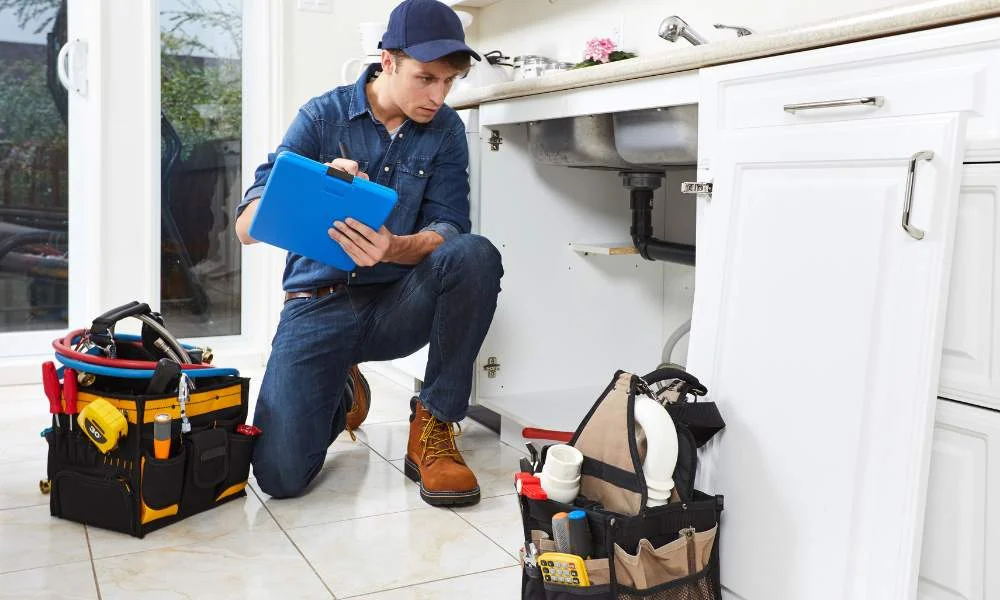Plumbing problems are a common occurrence in homes, and they can range from minor inconveniences to major emergencies. In this article, we will explore some of the most common plumbing issues that homeowners encounter and provide valuable tips on how to prevent them. With the right knowledge and preventive measures, you can save yourself the hassle and cost of plumbing repairs.

Clogged Drains
Clogged drains in sinks, showers, and toilets are another common plumbing problem. These blockages are typically caused by a buildup of hair, soap scum, grease, or foreign objects. To prevent clogs, use drain screens to catch debris, avoid pouring grease down the sink, and be cautious about what goes down the toilet. Regularly cleaning your drains with a mixture of vinegar and baking soda can also help.
Running Toilets
A running toilet is not only noisy but can also waste a significant amount of water. The most frequent cause of a running toilet is a faulty flapper valve or fill valve. Replacing these components is a relatively simple DIY fix. Regularly inspect your toilet for any signs of running water and address the issue promptly to conserve water and save on your water bill.
Low Water Pressure
Low water pressure can be frustrating when you’re trying to shower or wash dishes. This issue can be caused by various factors, including mineral buildup in pipes, a malfunctioning pressure regulator, or a hidden leak. Regularly clean faucet aerators and showerheads to remove mineral deposits, and if low water pressure persists, consult a plumber to diagnose and address the underlying cause.
Burst Pipes
Burst pipes are one of the most serious plumbing problems homeowners can face. They can result from freezing temperatures, excessive water pressure, or aging pipes. To prevent burst pipes, ensure your home is adequately insulated, especially in areas where pipes are exposed to cold weather. Consider having a plumber inspect and reinforce vulnerable pipes.
Water Heater Issues
Water heater problems can range from inadequate hot water to leaks. To prevent issues with your water heater, flush the tank periodically to remove sediment buildup, and have it professionally serviced at regular intervals. An annual inspection can help detect and address potential problems before they escalate.
Sewer Line Blockages
Sewer line blockages can lead to sewage backups in your home, causing extensive damage and health hazards. To prevent sewer line issues, avoid flushing non-biodegradable items down the toilet and be cautious about what goes down your drains. Tree roots can also invade sewer lines, so it’s essential to monitor your landscaping and address any root intrusion promptly.
Also Read: Sewer Line Inspections by Experts: What Can You Expect
Dripping Water Supply Lines
Water supply lines that feed your faucets, appliances, and toilets can develop leaks over time. Check for any signs of dripping or water stains under sinks and behind appliances. Replacing old or damaged supply lines with braided stainless steel options can prevent leaks and potential water damage.
Garbage Disposal Problems
Garbage disposals are prone to clogs, jamming, and mechanical issues. To prevent problems with your garbage disposal, avoid disposing of hard items like bones or fibrous materials like potato peels. Run cold water while using the disposal to help keep it clean, and use ice cubes and citrus peels to maintain the grinding mechanism.
Frozen Pipes
In colder climates, frozen pipes are a significant concern. When water freezes inside pipes, it can expand and cause them to burst. To prevent frozen pipes, insulate exposed pipes, disconnect hoses from outdoor faucets before winter, and allow a slow drip from indoor faucets during freezing temperatures to keep water moving.
Plumbing problems are a part of homeownership, but with vigilance and preventive measures, many common issues can be avoided or addressed before they become major concerns. Regular maintenance, quick fixes for minor issues, and professional inspections can go a long way in keeping your plumbing system in good working condition and saving you both money and stress in the long run. By understanding the causes and prevention of these common plumbing problems, you can maintain a well-functioning plumbing system in your home.